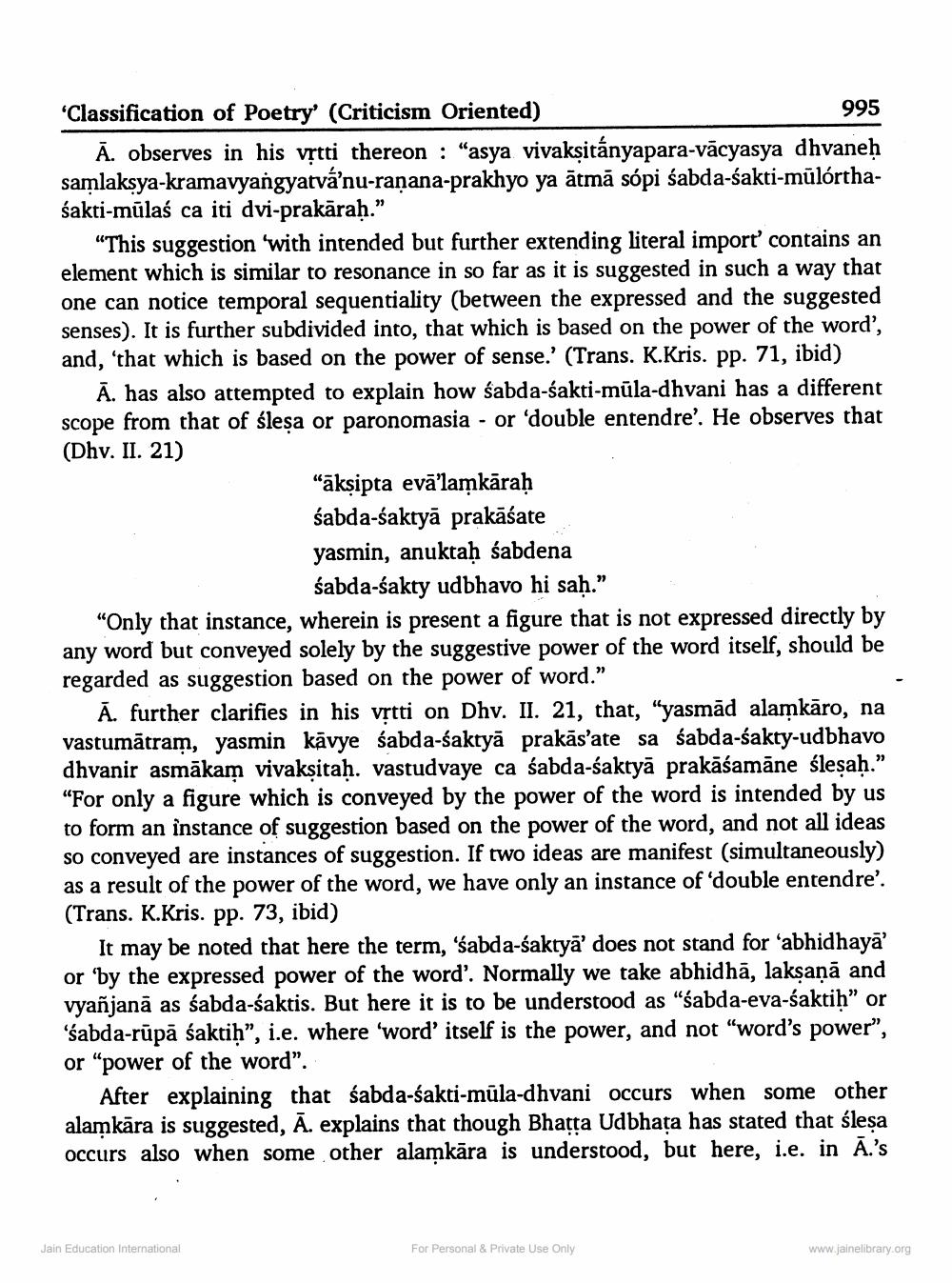________________
'Classification of Poetry (Criticism Oriented)
995 Ā. observes in his vṛtti thereon : "asya vivakşitányapara-vācyasya dhvaneh samlaksya-kramavyangyatvá’nu-ranana-prakhyo ya ātmā sópi śabda-śakti-mūlórthaśakti-mūlaś ca iti dvi-prakāraḥ.”
"This suggestion 'with intended but further extending literal import contains an element which is similar to resonance in so far as it is suggested in such a way that one can notice temporal sequentiality (between the expressed and the suggested senses). It is further subdivided into, that which is based on the power of the word', and, 'that which is based on the power of sense.' (Trans. K.Kris. pp. 71, ibid)
Ā. has also attempted to explain how śabda-sakti-mūla-dhvani has a different scope from that of ślesa or paronomasia - or double entendre'. He observes that (Dhv. II. 21)
"ākṣipta evā’lamkāraḥ śabda-śaktyā prakāśate yasmin, anuktaḥ śabdena
śabda-śakty udbhavo hi sah.” "Only that instance, wherein is present a figure that is not expressed directly by any word but conveyed solely by the suggestive power of the word itself, should be regarded as suggestion based on the power of word.”
Ā. further clarifies in his vrtti on Dhv. II. 21, that, "yasmād alamkāro, na vastumātram, yasmin kavye sabda-sakryā prakās'ate sa sabda-śakty-udbhavo dhvanir asmākam vivaksitaḥ. vastudvaye ca sabda-śaktyā prakāśamāne śleşah.” “For only a figure which is conveyed by the power of the word is intended by us to form an instance of suggestion based on the power of the word, and not all ideas so conveyed are instances of suggestion. If two ideas are manifest (simultaneously) as a result of the power of the word, we have only an instance of 'double entendre'. (Trans. K.Kris. pp. 73, ibid)
It may be noted that here the term, 'śabda-śaktyä' does not stand for ‘abhidhayā' or 'by the expressed power of the word'. Normally we take abhidhā, laksaņā and vyañjana as sabda-saktis. But here it is to be understood as "sabda-eva-saktih" or 'sabda-rūpā saktih”, i.e. where 'word' itself is the power, and not "word's power”, or “power of the word”.
After explaining that śabda-śakti-mūla-dhvani occurs when some other alamkāra is suggested, Ā. explains that though Bhatta Udbhata has stated that ślesa occurs also when some other alamkāra is understood, but here, i.e. in A.'s
Jain Education International
For Personal & Private Use Only
www.jainelibrary.org




